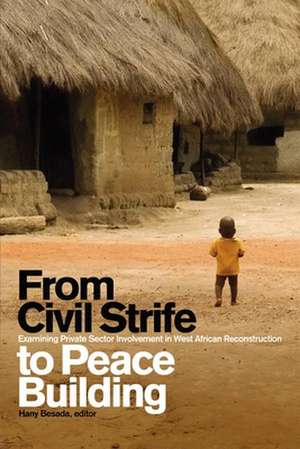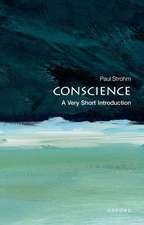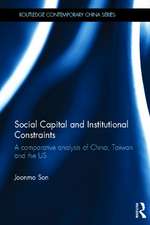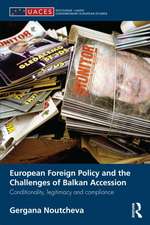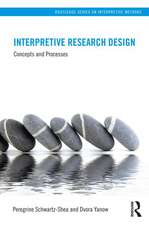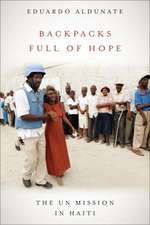From Civil Strife to Peace Building: Studies in International Governance
Editat de Hany Besadaen Limba Engleză Paperback – 22 oct 2009
Din seria Studies in International Governance
-
 Preț: 253.67 lei
Preț: 253.67 lei -
 Preț: 287.73 lei
Preț: 287.73 lei -
 Preț: 322.77 lei
Preț: 322.77 lei -
 Preț: 320.09 lei
Preț: 320.09 lei -
 Preț: 350.45 lei
Preț: 350.45 lei -
 Preț: 328.76 lei
Preț: 328.76 lei -
 Preț: 328.76 lei
Preț: 328.76 lei -
 Preț: 327.77 lei
Preț: 327.77 lei -
 Preț: 348.54 lei
Preț: 348.54 lei -
 Preț: 339.09 lei
Preț: 339.09 lei -
 Preț: 330.67 lei
Preț: 330.67 lei - 37%
 Preț: 196.44 lei
Preț: 196.44 lei
Preț: 325.86 lei
Nou
62.35€ • 65.24$ • 51.80£
Carte tipărită la comandă
Livrare economică 03-17 aprilie
Specificații
ISBN-10: 1554580528
Pagini: 312
Ilustrații: b/w maps
Dimensiuni: 152 x 228 x 18 mm
Greutate: 0.45 kg
Editura: Wilfrid Laurier University Press
Seria Studies in International Governance
Cuprins
Table of Contents for
From Civil Strife to Peace Building: Examining Private Sector Involvement in West African Reconstruction, edited by Hany Besada
List of Figures and Tables
Foreward I | High Commissioner Darren Schemmer
Foreword II | Jonathan G. Coppel
Acknowledgments
List of Acronyms
Peacebuilding and the Role of the Private Sector in Post-Conflict West Africa: A Conceptual Framework | Hany Besada, Vadim Ermakov, and Miran Ternamian
Part I: Côte d'Ivoire
1. From Linas-Marcoussis to the Ouagadougou Political Agreement: The Torturous and Open-Ended Peace Process in Côte d'Ivoire | Gilles Yabi and Andrew Goodwin
2. The Politics of Post-Conflict Elections in Côte d'Ivoire | Chrysantus Ayangafac
3. Côte d'Ivoire: The Role of the Private Sector in Building a Peace Economy | Willene A. Johnson
4. Foreign Investors and International Donor Contributions to Côte d'Ivoire's State-Building Efforts | Lydie Boka-Mene and Oren E. Whyche-Shaw
Part II: Sierra Leone
5. Breaking with the Past: Transitional Justice in Sierra Leone | Ozonnia Ojielo
6. Post-Conflict Peacebuilding: The Role of the UN Integrated Office in Sierra Leone (UNIOSIL) | Sunday Abogonye Ochoche
7. The Role of the Private Sector in Sierra Leone's Post-Conflict Reconstruction Efforts | Emmanuel Nnadozie and Siham Abdulmelik
8. The Role of the Privatization Program as a Catalyst for Economic Reform in Sierra Leone | Andrew K. Keili
Part III: Liberia
9. State-Building Efforts in Post-Conflict Liberia | Sunny Nyemah
10. Security-Sector Reform in Liberia | Mark Malan
11. State Building in a Post-Conflict Context: The Liberian Framework for Donor Aid and Private Investments | Caroline Khoubesserian
12. Liberia: Building Peace Through Investment-Climate Reform | David Bridgman and Robert Krech
Afterword | Eddy Maloka
Recommended Reading
Index
Contributors
Siham Abdulmelik is a consultant working with the NEPAD Support Section at the UN Economic Commission for Africa. Previously, she worked in Sudan in the field of parliamentary development with the Canadian Parliamentary Centre. She was involved in developing the peacebuilding program designed to enhance the capacity of the National Assembly and the Southern Sudan Legislative Assembly to support the peace agreements signed and to strengthen the democratic process under way. Her background is in economics and public policy. Her research interests are in African governance mechanisms, institutional capacity building, and post-conflict recovery.
Chrysantus (Chris) Ayangafac is a senior researcher at the Institute for Security Studies, Addis Ababa office. His research interest is conflict prevention, management, and resolution in Africa. He is currently researching regional security mechanisms in Africa with a specific interest in the African Peace and Security Architecture. He has published widely on conflict and integration in Africa. His latest publication, as editor, is The Political Economy of Regionalization in Central Africa. He is also a reviewer for the International Journal of Transitional Justice and has done extensive radio and television interviews on conflicts on the continent with radio stations such as SADC Africa, Channel Africa, and Radio Netherlands. Currently he is a Ph.D. student at the University of Witwatersrand, Department of International Relations. His proposed Ph.D. thesis is titled "The Natural Resources Conflict Nexus: Bringing Back Politics."
Hany Besada is the Senior Researcher and Program Leader of the Health and Social Governance Program at the Centre for International Governance Innovation. Mr. Besada's research interests include African economic and political development, Middle East studies, international diplomacy, fragile/failed states, private-sector development, and conflict resolution. He holds his M.A. and B.A. in International Relations from Alliant International University in San Diego, where he specialized in peace and security studies. Before joining CIGI, he worked as the Business in Africa Researcher at the South African Institute of International Affairs (SAIIA) in Johannesburg, South Africa. Prior to that, he worked as a research manager at Africa Business Direct, a trade and investment consulting firm in Johannesburg. He also worked at a number of non-governmental and governmental research institutes and offices. These included Amnesty International, the Office of U.S. Senator Dianne Feinstein, United Nations Associations, and the Joan Kroc Institute of Peace and Justice.
Lydie Boka-Mene's background is in international economics and finance (Diplomatische Akademie, Vienna, Austria). She has twenty year's experience in project finance (including agricultural commodities) and management as well as risk analysis. Her employers include USAID, the International Finance Corporation, the African Development Bank, and other financial institutions in Africa, Europe, and the Middle East. She is the founder and manager of StrategiCo. (http://www.strategico.org), which specializes in risk analysis in Africa and the Middle East using a methodology designed to capture developing countries' risk. Ms. Boka is a dual citizen of France and Côte d'Ivoire. StrategiCo. clients includes corporate and financial institutions, as well as decision makers from Africa and the Middle East.
David Bridgman is the lead expert in private-sector development in the World Bank Group Investment Climate Team for Africa. He leads the team's work on investment institutions in Africa and holds specific responsibility for leading the team's advisory program in Liberia. Previously, he managed MIGA's Sub-Saharan Africa Program. Before that he established and managed MIGA's global investment promotion capacity-building program. A South African national, he holds degrees from South African and American universities, finishing with a Ph.D. in International Development from Cornell University. During his career he has served on numerous public and publicprivate sector boards and has held teaching and research positions at universities in South Africa and the United States. Prior to joining MIGA, he established an economic development agency in South Africa and was actively involved in development matters during and after South Africa's political transformation.
Jonathan Coppel is the executive program manager of the NEPAD-OECD Africa Investment Initiative and senior economist developing user guidelines for the Policy Framework for Investment with the OECD Investment Division. Since joining the OECD he has held a range of positions, including Deputy Counsellor to the Chief Economist, head of the EU and UK Desks, and energy market analyst. Mr. Coppel has also held senior management positions in the Reserve Bank of Australia. He started his career at the Australian Commonwealth Treasury. He was educated at the Australian National University and at Columbia University in New York.
Vadim Ermakov is an associate at Pricewaterhouse Coopers in Porto, Portugal. He holds a B.A. in international economic relations from the University of World Economy and Diplomacy in Tashkent, an M.Sc. in technology and innovation management from Sussex University in Brighton, and an M.P.P. in public policy from the Hertie School of Governance in Berlin. Prior to joining PwC he completed an internship at CIGI in Waterloo, Ontario, where he worked with Hany Besada, a senior researcher and program leader in the Health and Social Governance Program. While studying in the United Kingdom, he was a policy consultant at the South East of England Development Agency and successfully completed the project Nurturing Innovation in the South-East Region: Assessment of the Innovation Advisory Service. He also worked on several development projects in Uzbekistan, supervised by the European Bank for Reconstruction and Development.
Andrew Goodwin majored in political science at the University of British Columbia and pursued a graduate degree in international relations at the Institut d'Études Politiques de Lille. He interned at the West African Network for Peacebuilding in Ghana and the International Crisis Group in Senegal, where this chapter was co-authored. He is currently a junior consultant at the UN Office on Drugs and Crime.
Willene A. Johnson is currently president of Komaza, Inc., an economic consulting firm specializing in the role of finance in development and reconstruction. Focusing on Africa, Dr. Johnson conducts research and offers instruction in various subjects, including microfinance and security-sector resource management. From January 2000 to September 2001, she served in Abidjan, Côte d'Ivoire, as the U.S. Executive Director of the African Development Bank, overseeing AfDB policies and development activities throughout Africa. She also serves as a member of the UN Committee for Development Policy and as the Vice-Chair of the Grameen Foundation African Advisory Council. Until recently, she was Chair of the Sub-Saharan African Advisory Committee of the U.S. Export-Import Bank and an adjunct professor of applied economics and management at Cornell University. Her work in finance and development builds on insights gained during nearly twenty years in the Federal Reserve System, where her career included economic research, foreign exchange, international financial markets, international affairs, and equal employment opportunity. Her education includes an A.B. in social studies from Radcliffe College, Harvard University, an M.A. in African history from Saint John's University, and a Ph.D. in economics from Columbia University.
Andrew Keili, a mining engineer by profession, is managing director of CEMMATS Group Ltd., a leading multidisciplinary engineering and project management consulting practice in Sierra Leone. Mr. Keili worked for a substantial period in the diamond and rutile mines in Sierra Leone before embarking on consultancy work. Over the past thirty years he has held positions of increasing responsibility in the private mining industry, in parastatals, and in consultancy work in Sierra Leone. He has an extensive background in the formulation and review of government policies, particularly in the mining, environmental, and infrastructure sectors, and has written extensively on the Sierra Leone mining industry. He has done consultancy work for several companies in the United States, Ukraine, and various countries in Africa. He is a member of the National Policy Advisory Committee to the president of Sierra Leone and has substantial experience in the Sierra Leone business sector. Mr. Keili is also chairman of the board of trustees of the National Social Security and Insurance Trust in Sierra Leone and a council member of the Sierra Leone Chamber of Commerce, Industry, and Agriculture and the Sierra Leone Institution of Engineers.
Caroline Khoubesserian has been working as a humanitarian aid worker since 2006 in Darfur, Liberia, and currently in Haiti. From 2003 to 2006 she was the senior research officer with the Centre for International Governance Innovation, where she coordinated several projects on multilateral governance, including global health governance and the L20 project. She has also worked in Lesotho with the Ministry of Justice to compile a UN Human Rights Report on Economic, Social, and Cultural Rights. She holds an M.A. in international politics from Dalhousie University and a B.Sc. in political science from the University of Ottawa.
Robert Krech has worked on conflict-affected countries for the past ten years, including Cambodia, Laos, Nepal, Sierra Leone, Liberia, the Democratic Republic of Congo, Haiti, and Somalia. He completed his graduate work in political science at the University of Toronto, where he focused on post-conflict reconstruction and conducted field research in Sierra Leone. He has published on postwar reconstruction and presented widely on the topic. He has worked for the World Bank for the past six years and lived in Liberia for two years, where he worked in the World Bank country office. Currently he works for the Foreign Investment Advisory Services in the World Bank Group as an operations specialist for Fragile and Conflict-Affected Countries.
Mark Malan is an analyst with the New Zealand Centre for Army Lessons. From May 2007 to July 2008 he served with Refugees International as Peacebuilding Program Officer and Executive Coordinator for the Partnership for Effective Peacekeeping. From 2004 to 2006 he established and headed the Conflict Prevention, Management, and Resolution Department of the Kofi Annan International Peacekeeping Training Centre. From 1996 to 2003, he served as a senior researcher and head of the Peace Missions Program at the Institute for Security Studies. Before joining the ISS, he served for twenty years with the South African Army, attaining the rank of lieutenant colonel and holding a variety of posts, including senior lecturer in political science at the SA Military Academy. Malan has developed a number of regional peacekeeping training courses and manuals and has published extensively on regional security and peacekeeping in Africa. He has been an active participant in the African and global policy debate on peace support operations. He drafted the White Paper on South African participation in peace missions and was a contributing author to the supplementary volume of the ICISS report, The Responsibility to Protect.
Eddy Maloka is currently the Adviser, Governance, Public Administration, and Post-Conflict Reconstruction, at the NEPAD Secretariat. Previously he was responsible for the African Legacy Program at the 2010 FIFA World Cup Local Organizing Committee. For seven years he was CEO of the Africa Institute of South Africa. Before joining the AISA, Maloka was a lecturer at the University of the Western Cape and the University of Cape Town; for about two years after that he was a political adviser in the Office of the Premier in South Africa's provinces of Gauteng and Mpumalanga. Maloka writes widely on development issues on the African continent. He researches extensively on political and developmental issues in Africa, including the history of the liberation struggle in South Africa, and writes a weekly column for the Sowetan. Maloka has delivered lectures at the world's premier universities, including Oxford and Princeton. He is Vice-President for Southern Africa of the Association of African Political Science and President of the SA Association of Political Studies.
Emmanuel Nnadozie is senior economist and chief of the UN Coordination Unit for AU/NEPAD Support at the UN Economic Commission for Africa (ECA). At one time he was focal point for the African Peer Review Mechanism at ECA. Before joining ECA in June 2004 he was an economics professor at Truman State University (1989-2004), visiting professor at the University of North Carolina (1996-97), and research fellow at Oxford University (1994). He is also the former chief planning officer at the World Bank's Agricultural Development Program in northern Nigeria. His scholarly works have appeared in academic and non-academic journals all over the world, and he is general editor of African Economic Development. An award-winning educator, he was recognized as the Most Outstanding Black Missourian of the Year in 2003. He has served as president of the African Finance and Economics Association of North America (1999-2001) and editor of the Journal of African Finance and Economic Development (1998-2002).
Sunny Nyemah is managing consultant at George Edward Consulting, where he directs the assurance and compliance operations. He is also an adjunct faculty member at Metropolitan State University, Minnesota. In addition, he sits on the board of African American Family Services, the Pan African Chamber of Commerce, and Liberia Environmental Watch. He is a member of the Minnesota Society of Certified Public Accountants, the National Association of Corporate Directors, the International Compliance Association, and the Anti-Money Laundering Compliance Association, and is a Certified Internal Auditor, a Certified Investment and Derivative Auditor, a Certified International Project Manager, a fellow of the American Academy of Project Management, and a graduate of the Real Estate Institute (GRI). He holds Series 6 and 63 Licensures of the National Association of Securities Dealers. Prior to joining George Edward Consulting, Mr. Nyemah was a senior director at Global Equity Lending, an emerging lender with more than $500 million in revenue, based in Suwannee, Georgia, where he was responsible for building a $5 million monthly pipeline of residential loans and for supervising more than 200 associates. In addition to his investment and financing background, Mr. Nyemah has worked at Robert Half as a management consultant, providing financial management consultancy to such companies as Norwest Bank (Wells Fargo), Aegon-USA, CIMA Labs, and Renewal by Anderson (Anderson Windows). Mr. Nyemah holds a master's degree from the University of St. Thomas graduate program in software engineering, in Minnesota, and is a prospective graduate of the Thomas Jefferson School of Law, California (LL.M. program in international public law and finance).
Sunday Abogonye Ochoche holds a B.A. (1977) in philosophy from the University of Ibadan, Nigeria, and M.A. (1981) and Ph.D. (1983) degrees in peace studies from the University of Bradford. Dr. Ochoche was SSRC-MacArthur Foundation Visiting Individual Fellow to the Institute of Development Studies, University of Sussex. He was also post-doctoral fellow of the SSRC-MacArthur Foundation in International Peace and Security Studies at the Matthew B. Ridgway Center for International Security Studies, University of Pittsburgh, and before that taught political science at the University of Jos, Nigeria. Subsequently, he joined the Nigerian War College as Deputy Director, Military Strategy. Later he became director of research. He was appointed the first Director General/CEO of the Institute for Peace and Conflict Resolution, the Presidency, Abuja, Nigeria, in which capacity he also served as adviser to the president on conflict management in Africa. He is currently Senior Political Affairs Officer, UN Integrated Office, in Sierra Leone. Dr. Ochoche was a member of the national committee that drafted Nigerias Defence Policy in 1997. In September 2002 he headed a four-nation ECOWAS committee to investigate the matter between Guinea-Bissau and Gambia. He was also a member of several Nigerian delegations to the UN General Assembly and AU summits. He is a fellow of War College, Nigeria.
Ozonnia Ojielo is Senior Peace and Development Advisor to the UN Resident and Humanitarian Coordinator in Kenya, as well as Chief, Peace Building and Conflict Prevention, UNDP Kenya. In his prior position, he was senior governance adviser and head of the Governance Program at UNDP, Ghana. Previously, he was chief of operations and subsequently officer-in-charge at the Sierra Leone Truth and Reconciliation Commission, during which period he supervised the statement taking, research, investigations, and report-writing work of the commission. Prior to that, he was a human-rights lawyer (1990-2002), academic (at the Enugu State University of Science and Technology, Enugu, Nigeria, 1997-20001), and president of the research and advocacy NGO, Centre for Peace in Africa, in Lagos, Nigeria (1993-2002). He was a technical adviser to the Malawi Human Rights Commission (1999-2001), adviser on alternative dispute resolution to the maritime industry in Nigeria, and president and fellow of the Institute of Chartered Mediators and Conciliators of Nigeria (2000-2005). He is also a fellow of the Society for Peace Studies and Practice, Nigeria, and of the 21st Century Trust, London. He is the author of two books-Alternative Dispute Resolution (Lagos: CPA Books, 2001), and Managing Organizational Disputes (Lagos: CPA Books, 2002)-and editor of a third, Rethinking Peace and Security in Africa (Lagos: CPA Books, 2002). Ozonnia holds a Ph.D. in peace and conflict studies from the University of Ibadan; a B.A. and M.A. in history from the University of Nigeria, Nsukka; an LL.B. from the Anambra State University of Science and Technology, Awka, Nigeria; and an M.B.A. in strategic management from the Paris Graduate School of Management, Paris. He has also attended professional courses in conflict transformation (Eastern Mennonite University, Virginia), conflict research (University of Uppsala, Sweden), international conflict resolution (Austrian Study Centre for Conflict Resolution/European Peace University, Stadschlaining), and conflict management and election observation (Scuola Superiore Sant Anna, Pisa, Italy).
H.E. Darren Schemmer, High Commissioner of Canada to Ghana and Ambassador to Togo (BW.Ed. [Social Sciences], University of Alberta, 1982; M.B.A., Royal Roads University, 2002), joined the Canadian International Development Agency in 1989 as a development officer with the Andes Program, Americas Branch. He has since served abroad in Tegucigalpa, Washington, and Cairo. At CIDA headquarters he has served as Senior Departmental Assistant to the Minister for International Cooperation; Director General, Policy, Planning and Management; and Director General, Haiti, Cuba, and Dominican Republic.
Miran G. Ternamian is a former research officer at the Centre for International Governance Innovation in Waterloo, Ontario. Mr. Ternamian's interests include Africa's economic, political, and security development, social justice as a means to peacebuilding, and environmentally sustainable economic development policies. He holds an honours B.A. from McMaster University and an M.B.A. in strategic management from Wilfrid Laurier University in Waterloo, Ontario. Prior to joining CIGI, he worked in Ottawa with the Bilateral Market Access Division of the Department of Foreign Affairs and International Trade. As a trade policy officer, Mr. Ternamian assessed Canadian industry interests, export opportunities, and import sensitivities with key trading partners.
Oren E. Whyche-Shaw has over the past twenty years held senior positions in the private sector, the not-for-profit sectors, and the public sector. She has worked in developing and emerging-market environments and in North and Sub-Saharan African countries advising on strategies to stimulate the growth of African capital markets and the private sector. Ms. Whyche has held positions at J.P. Morgan, Citibank, R.J. Reynolds Industries, Owens Corning, the African Development Bank, Technosesrve, Inc., and the U.S. Treasury. She has served on the boards of the Planned Parenthood Federation, the African Venture Capital Association, the African Export-Import Bank, and Plan USA. She received a B.Sc. in mathematics and French from Capital University (Columbus, Ohio) and an M.B.A. from the Columbia University School of Business.
Gilles Olakounle Yabi is a senior analyst of the West Africa Project (Dakar) with the International Crisis Group at the time of writing. He joined the International Crisis Groups West Africa office in September 2004 and conducts research on francophone West Africa. Dr. Yabi is responsible for the research and writing of the policy reports and briefings published by the International Crisis Group on the conflicts and political crises in Côte d'Ivoire and Guinea. He also contributed to the West Africa Project's research activities on other countries and issues in West Africa. Prior to joining Crisis Group, he completed a doctoral thesis in economics on the determinants of foreign direct investments and their impact on the economic growth in developing countries. He holds his Ph.D. and a postgraduate degree in development economics from the Centre of Studies and Research on International Development of the University of Clermont-Ferrand and a master's degree in international economics from Sorbonne University in Paris. He has also worked as a journalist for the Paris-based newsmagazine Jeune Afrique.
